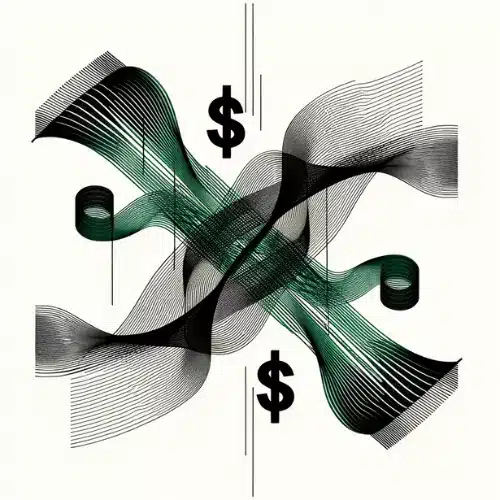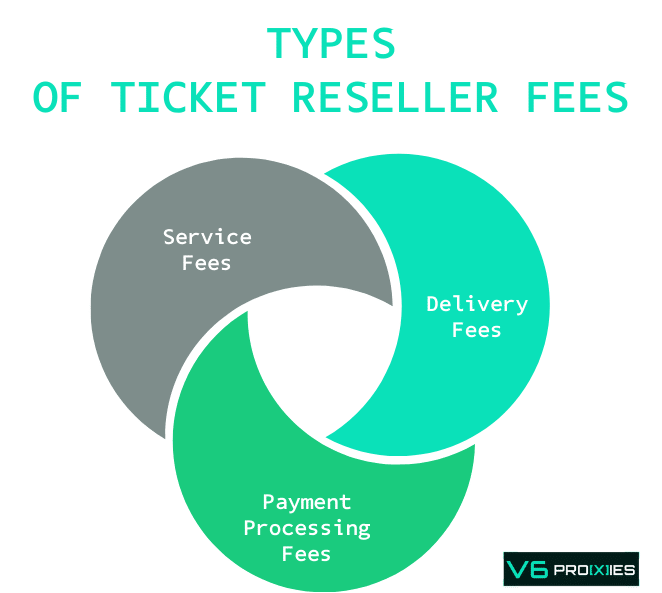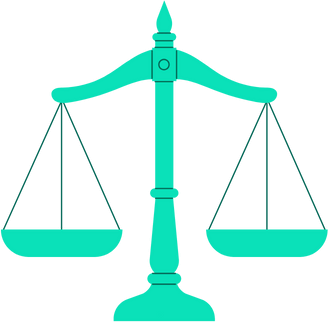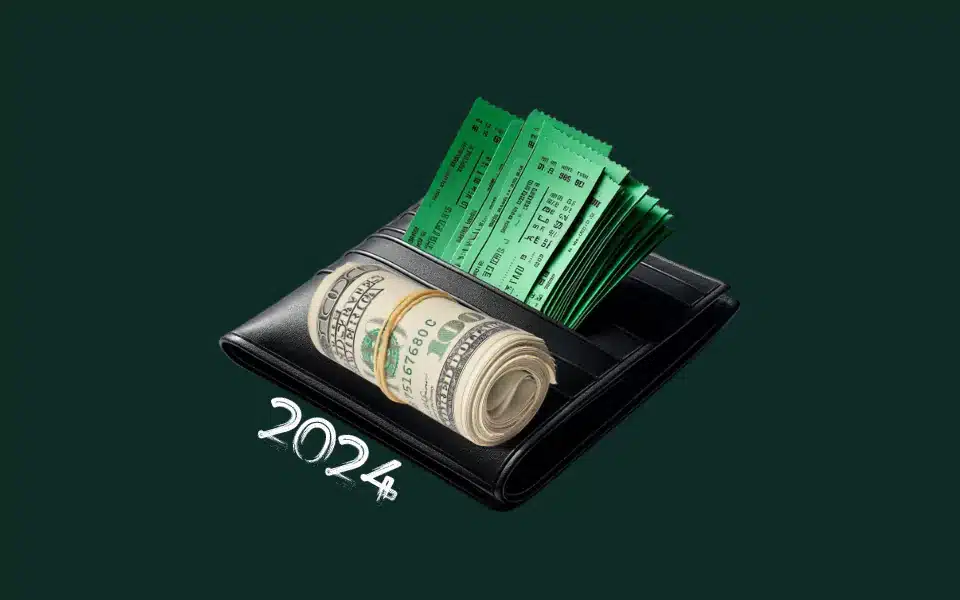In the competitive world of ticket reselling, your success largely depends on finding a platform with the lowest fees. There are numerous options each with their own commission plans which can make the selection process confusing. So, the billion-dollar question for smart resellers like you is: Which ticket reseller has lowest fees?
Don’t worry! This guide will provide a detailed breakdown of the fee structures of popular ticket reselling platforms, highlighting those that allow you to keep the most profits.

Table of Contents
Unmasking the Hidden Costs in Ticket Reselling
The ticket reselling business is often more complex than it appears, with various hidden costs that can surprise both buyers and sellers. These costs, which go beyond the ticket’s listed price, can substantially alter the final amount paid or received. The key to navigating this market is understanding and anticipating these additional expenses.

Types Of Ticket Reseller Fees
When purchasing tickets through resellers, various fees are often added to the cost. Understanding these fees can help buyers and sellers navigate the resale process more effectively. Here are the key categories of ticket reseller fees involved:
1. Service Fees
- Definition: Service fees are charged per ticket by platforms like Ticketmaster to cover their operational costs and the costs incurred by the venue or event organizer. This fee is shared between the ticketing platform and the venue/team.
- Example: On Ticketmaster, this fee varies but is applied to each ticket sold. The venue’s portion is used to cover costs like staffing and maintenance, while Ticketmaster’s share covers their technology and secure ticket-buying experience.
2. Delivery Fees
- Definition: These fees cover the cost of delivering the tickets to the buyer, which can vary based on the method chosen (digital or physical).
- Example: For digital delivery on Ticketmaster, there is usually no fee. However, choosing physical delivery incurs a fee to cover printing and shipping costs.
3. Payment Processing Fees
- Definition: Payment processing fees are incurred during the checkout process to cover the costs associated with processing payments.
- Example: Ticketmaster charges about 3% of the ticket price as a payment processing fee.
On top of these, buyers may encounter convenience fees for the ease of online or phone ticket purchases. The specifics of these fees are often not transparent, leaving many buyers unaware until the final stages of the transaction.
We’ll analyze the established ticket reselling platforms like Ticketmaster and StubHub, before venturing into the rising stars like TickPick and AXS. Buckle up, resellers, it’s time to demystify the fee labyrinth!
Which Ticket Reseller Has Lowest Fees?
Our exploration of the 2024 ticket reselling landscape brought us front and center with the industry’s top contenders. We’ve scrutinized them, comparing fees to give you a comprehensive look at who’s offering the lowest reseller fees.
1. Craigslist
Unique in its approach, Craigslist does not charge any buying or selling fees. However, it has a higher risk of scams.
2. eBay
eBay Offers a more flexible selling and buying experience with fees ranging from 5% to 15% for sellers and a $0.30 fee per order. Buyers don’t pay any fee.
3. StubHub
StubHub, famous for its FanProtect Guarantee, asks sellers for 10% of the ticket’s selling price. But, buyers often notice a considerable 28% increase from the original event organiser’s prices.
4. Vivid Seats
Vivid Seats, a significant player in the ticket reselling industry, presents a standard fee structure for its sellers. Typically, sellers can expect to pay around 10% of the ticket’s selling price as a fee. This rate aligns with industry norms, making it a competitive option for resellers.
5. AXS.com
Seller fees vary when you use AXS to resell tickets, but they generally include a service fee and sometimes a delivery fee. The total can range from 10% to 15%.
6. TickPick
TickPick stands out with its no-buyer-fee policy. While it does charge sellers a 15% fee, buyers benefit from zero additional costs. It offers a medium level of ticket availability and provides a 100% BuyerTrust Guarantee.
7. Ticketmaster
The industry titan charges a service fee of 10-20%, potentially coupled with convenience fees. Delivery and payment processing fees add to the burden. While their reach is vast, those profits can dwindle rapidly. This is quite a clear brief answer to the question of “Why are Ticketmaster fees so high?”
Fee Transparency: The Key to Choosing Your Ticket Reseller
When selecting a ticket reseller platform for your side hustle, fee transparency stands as a crucial factor. Transparent fee structures ensure that both buyers and resellers clearly understand the costs involved in a transaction. Platforms that openly disclose their fees, including any additional charges for services like delivery, processing, or fraud protection, empower users to make informed decisions.
Fee transparency builds confidence among users, and helps in comparing different platforms effectively. It allows sellers to calculate their potential earnings accurately and buyers to understand the final price they will pay.
In an industry where hidden fees can often lead to dissatisfaction, platforms that prioritize transparent fee structures set themselves apart as trustworthy and user-centric.

Is Cheaper Always Better?
While lower fees are attractive, they don’t always equate to the best option in the ticket reselling industry. Cheaper fees can sometimes mean compromised services, such as limited customer support, fewer security measures, or reduced marketing for ticket listings.
It’s essential to consider the value provided by the reselling platform. A slightly higher fee might come with enhanced services like robust fraud protection, extensive customer support, and broader exposure for ticket listings, leading to quicker sales or better ticket prices.
Sellers must weigh the fee against the services provided and the platform’s reach.
How Ticket Resellers Keep Their Fees Competitive?
Ticket resellers employ various strategies to keep their fees competitive while still offering valuable services.
- One common approach is leveraging technology to streamline operations and reduce overhead costs. By using advanced algorithms for dynamic pricing, automated customer service tools, and efficient payment processing systems, resellers can minimize operational costs and pass these savings onto users.
- Another strategy is to focus on niche markets or specialize in certain types of events, which allows for tailored services and potentially lower costs due to a more focused business model.
- Additionally, some resellers create loyalty programs or offer discounts and promotions, which can effectively reduce the overall cost for frequent users.
By balancing cost-saving measures with quality services, ticket resellers strive to offer competitive fees that appeal to both buyers and sellers in a dynamic market full with ups and downs.
Related articles:
- Tags:
- comparison, Reselling, Ticketing proxies


